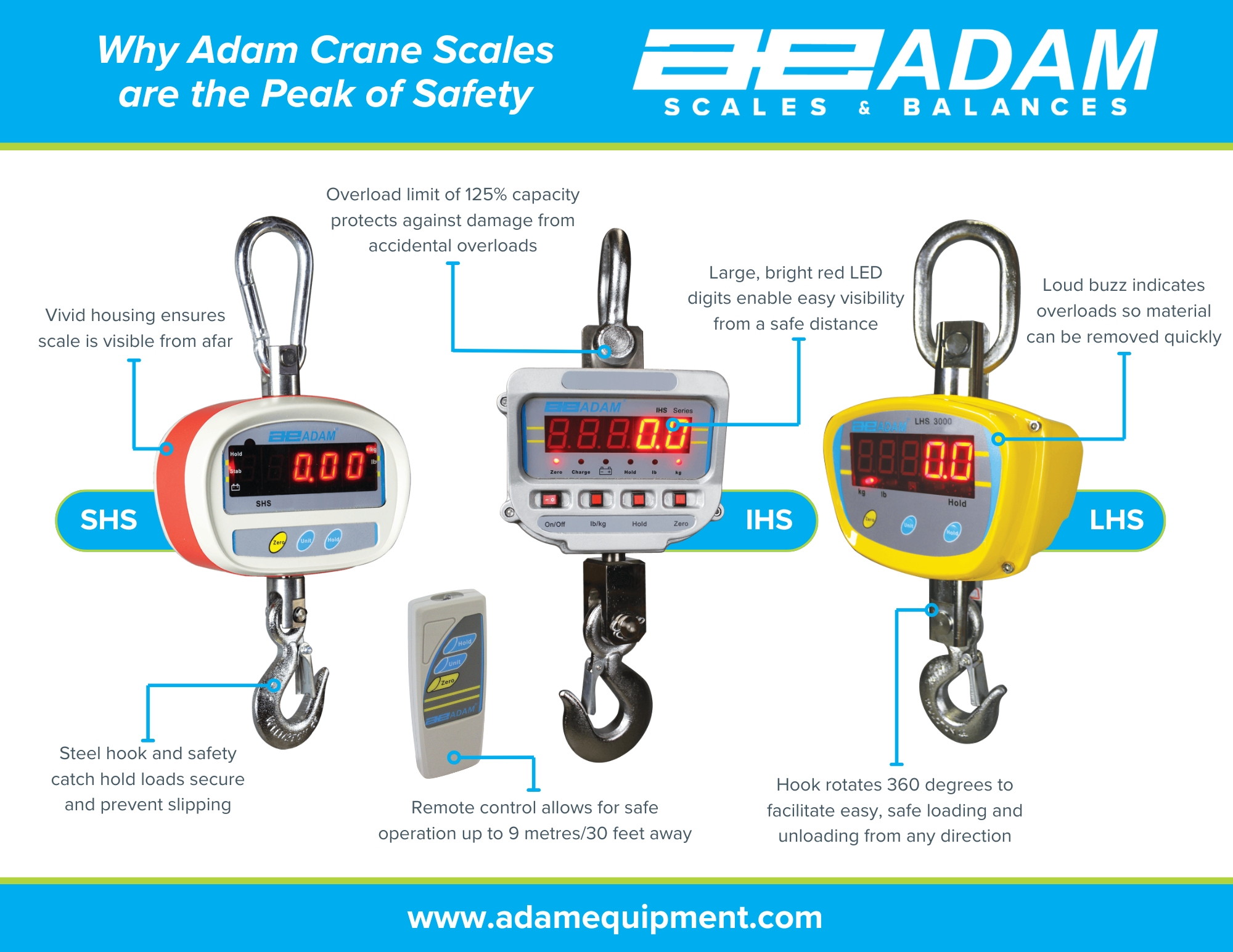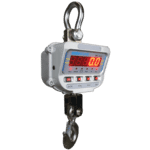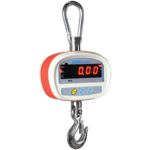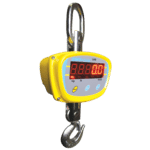
Crane scales are used for two primary purposes. The first is to weigh especially large or abnormally shaped objects that wouldn’t sit correctly on a floor model. The second is to ensure that the crane or gantry carrying and transporting these objects isn’t overloaded. Both involve suspending heavy items in the air, which could pose a serious safety hazard if the proper precautions aren’t taken.
Adam Equipment’s crane scales are designed to minimise this risk as much as possible. This blog will discuss the top 5 ways Adam’s , and crane scales take safety into account.
1. Operation Via Remote Control
The first rule of utilising crane scales is to maintain a safe distance when the items are suspended in the air and especially when they’re moving. However, it can take more time and delay processes if you need to keep raising and lowering the material when you need to adjust the crane scale’s settings, such as changing the weighing units.

When you’re frequently raising and lowering the load, operators and those working in the area are more likely to have their attention wane and become laxer about maintaining a safe distance until the load is safely on the ground. Even worse, operators may become tempted to climb on top of a load to reach the crane scale instead of removing the material first in their impatience, which may lead to overloading the scale, material breaking and/or operator getting injured.
Adam Equipment’s , and each come equipped with a remote control that’s able to tare, zero, change weighing units and hold the settled values from up to 9 meters away. Raising and lowering the load will be necessary less often, which encourages those in the area to pay more stringent attention and discourages unsafe practices like climbing on top of loads when impatience strikes.
2. Rotating Shackle Hook
Handling large, cumbersome materials can be challenging, particularly when trying to manoeuvre them into the correct position for most effective weighing. Adam Equipment’s crane scales feature a 360-degree rotating safety hook, which reduces the need to ensure precise alignment when loading.
Loads can attach from any angle and can rotate if necessary, which reduces the strain on both the load itself and the scale, as well as preventing the lifting rope or chain from twisting. In addition, it’s much less likely for the load to swing unexpectedly, which helps prevent accidents. Should a crane or gantry be transporting the material a great distance, those receiving the delivery at the end of the line can unhook more easily when they can choose the direction the items will sit. They have more direct control over how the load will be moving, allowing them to set up the safest and most effective method for the circumstances.
Click to download the full infographic
3. High Overload Protection
It’s essential to respect the capacity of any scale or balance to protect its performance and longevity. Regularly overloading your crane scale can damage the load cell, which leads to inaccurate results. However, it’s not always possible to know whether your material will exceed the scale’s capacity, so accidental overloads are likely inevitable. For example, Adam’s offers a capacity of 10,000kg, the highest available out of Adam’s crane scales. If it’s overloaded to 10,250kg, the scale would buzz and the display would show dashes to indicate it’s overloaded, rather than providing a weight reading. At this point, you should immediately unburden the scale.
All Adam Equipment crane scales are designed with an overload limit of 125% of the capacity precisely to withstand occasional overloads. The IHS 10’s overload limit is 12,500kg. Beyond this, there is sure to be permanent damage, and the structural integrity of the scale will be compromised, which can be incredibly dangerous. So, while the IHS 10 can handle up to that amount, this is purely for safety purposes. The high threshold is there to minimise risk to both operators and equipment in case of accidental overloads, but regular use should always stay within the scale’s capacity.
4. Robust Construction & Materials
Significant overload protection is fantastic for maintaining safety, but the reason Adam crane scales can boast such overload protection is because of their robust and durable construction.
Adam’s accommodate lighter loads with capacities of 50kg – 300kg and finer readabilities between 0.01kg and 0.05kg. Bright orange poly-carbonate housing and a large, chrome-plated steel hook and shackle provide exceptional durability and help maintain visibility when in the air.
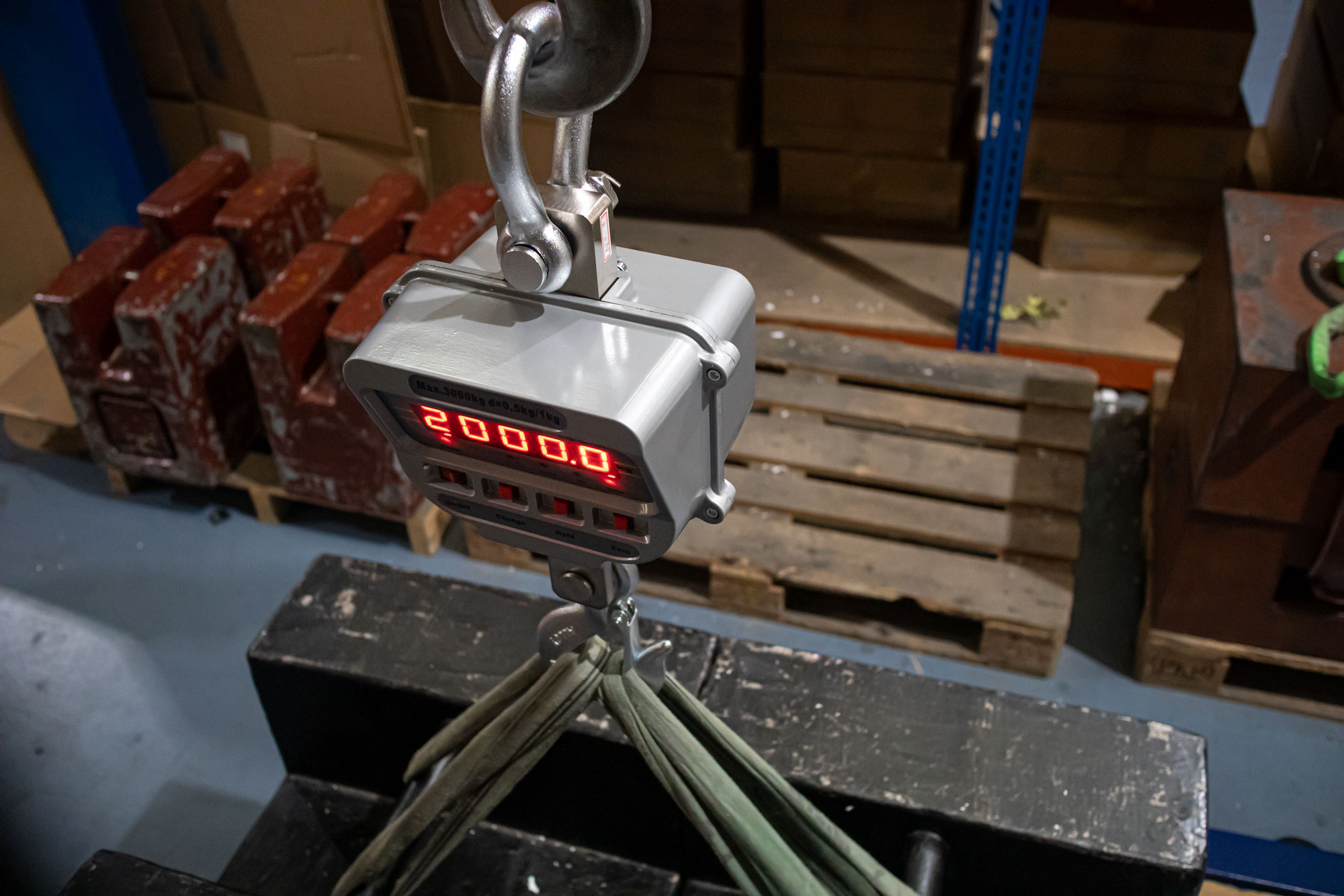
Mid-capacity, Adam’s can handle weights between 500kg and 2000kg. To match its heavier responsibilities, LHS Crane Scales are constructed with vivid yellow cast-aluminium magnesium and chrome-plated steel hook. The is built for very large masses with aluminium diecast housing, plated steel hook and an oversized shackle for extra sturdiness.
The SHS, LHS and IHS each feature a safety catch on their hooks, holding the weight secure and preventing materials from slipping off the hook and tumbling to the ground, injuring those below.
5. Clear Display for Accurate Readings
Adam Equipment crane scales feature bright red LED displays. Increasing with their capacities, Adam’s offer 15mm-high digits, while the ’s are 25mm-high and the boasts the biggest at 30mm-tall. Having such large, clear results improves visibility in low lighting and outdoor conditions. This reduces operator errors and allows safe use at a distance, where you can confidently tell if the crane is overloaded and record the weight of the material without getting too close.
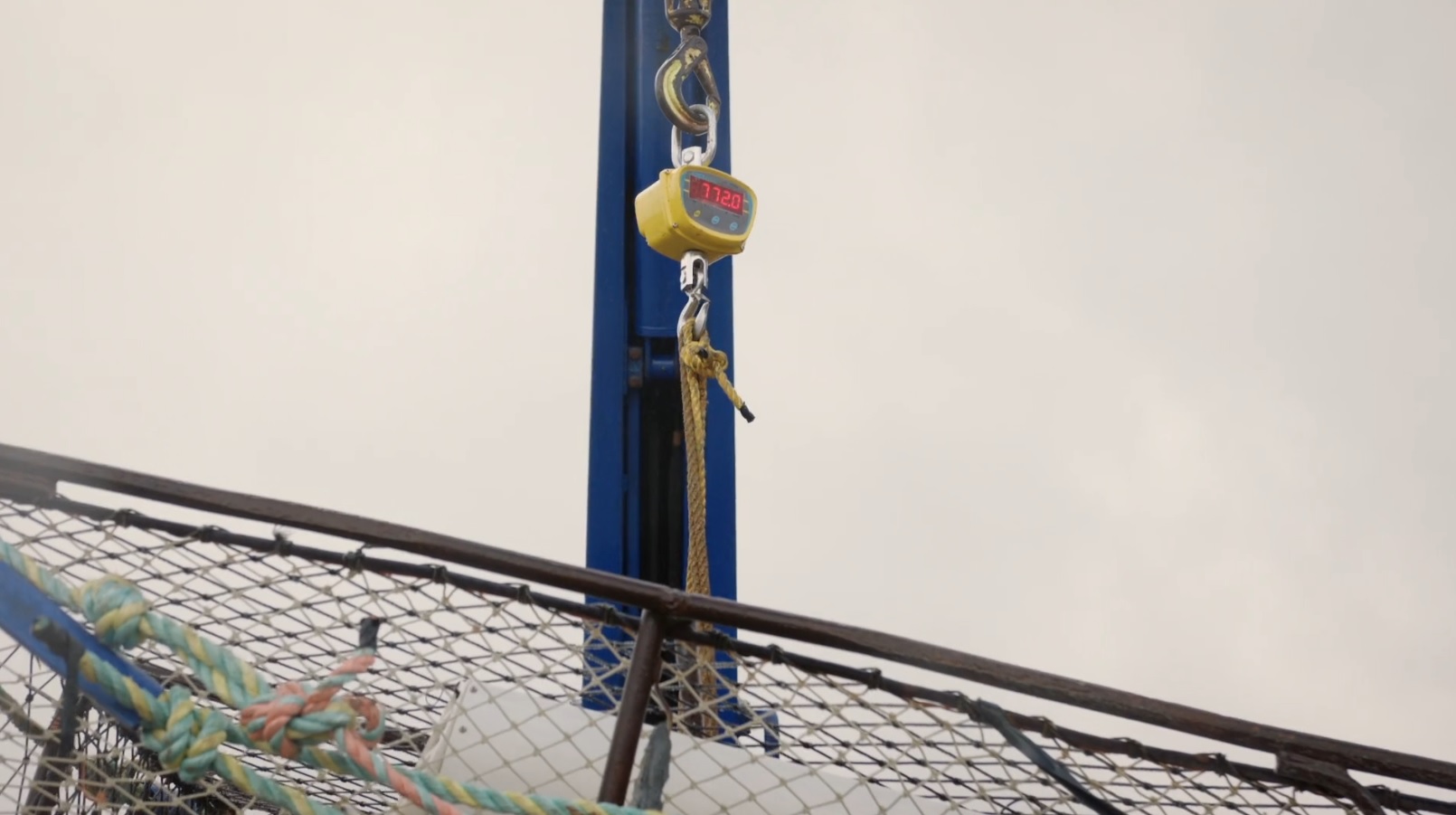
If the load gets too high before you’re able to read the result, simply activate the Hold function on your remote. The weight will still be shown on the scale when the material is removed and the scale within reading distance again.
Looking for a safe crane scale? Contact the Adam team, we’ll be happy to help make a perfect match.
*Adam Equipment Co. Ltd. its directors, owners and affiliated companies and organisations cannot be held liable for any resulting damage or injury sustained as a result of the machines being used in excess of their stated maximum capacity, capabilities and ultimate overload limits. To avoid possible injury or death, read all instructions stated in the Manual before using.


